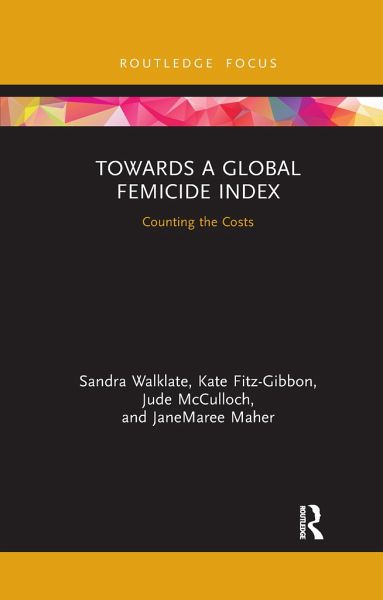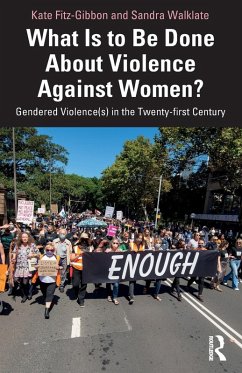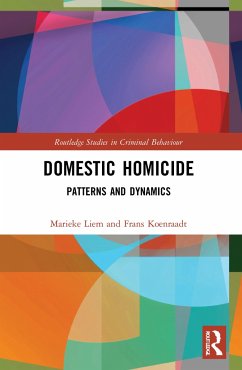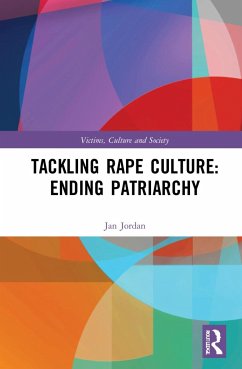
Towards a Global Femicide Index
Counting the Costs
Versandkostenfrei!
Versandfertig in 6-10 Tagen
25,99 €
inkl. MwSt.
Weitere Ausgaben:

PAYBACK Punkte
13 °P sammeln!
Increasingly there is global attention on the prevalence of women's deaths resulting from intimate partner violence. Campaigns such as 'Counting Dead Women' in Australia, the 'Femicide Census' in England, the Canadian Femicide Observatory, and the emergence of family violence death review teams globally, build on the work of agencies such as the United Nations and the World Health Organisation, highlighting the fatal consequences of intimate partner violence for women around the world.This book considers the need for and the steps to be taken towards creating a meaningful framework for a globa...
Increasingly there is global attention on the prevalence of women's deaths resulting from intimate partner violence. Campaigns such as 'Counting Dead Women' in Australia, the 'Femicide Census' in England, the Canadian Femicide Observatory, and the emergence of family violence death review teams globally, build on the work of agencies such as the United Nations and the World Health Organisation, highlighting the fatal consequences of intimate partner violence for women around the world.
This book considers the need for and the steps to be taken towards creating a meaningful framework for a global index of women's deaths from intimate partner violence. While there are global indices for deaths that relate to public violence, such as terrorism, there is to date no systematic global count of killings of women by their intimate partners. It considers the possibilities and challenges that arise in counting intimate femicide. It argues that such an exercise needs to avoid narrow empiricism and instead be part of a broader feminist political project aimed at ending violence against women.
This work will be of great interest to students and scholars of criminology, sociology, law, policing, and politics.
This book considers the need for and the steps to be taken towards creating a meaningful framework for a global index of women's deaths from intimate partner violence. While there are global indices for deaths that relate to public violence, such as terrorism, there is to date no systematic global count of killings of women by their intimate partners. It considers the possibilities and challenges that arise in counting intimate femicide. It argues that such an exercise needs to avoid narrow empiricism and instead be part of a broader feminist political project aimed at ending violence against women.
This work will be of great interest to students and scholars of criminology, sociology, law, policing, and politics.














